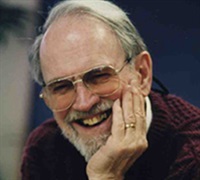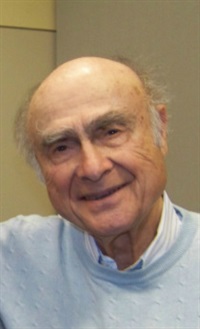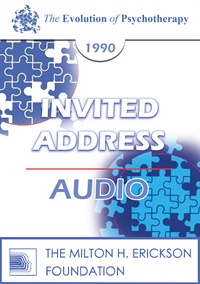EP90 Invited Address 11b - The Betrayal of the Human: Psychotherapy's Mission to Reclaim Our Lost Identity - James F.T. Bugental, PhD
- Average Rating:
- Not yet rated
- Topic Areas:
- Invited Addresses | Psychotherapy | Therapist Development
- Categories:
- Evolution of Psychotherapy | Evolution of Psychotherapy 1990
- Faculty:
- James Bugental, PhD | Erving Polster, PhD
- Duration:
- 1:30:07
- Format:
- Audio Only
- Original Program Date:
- Dec 16, 1990
- License:
- Never Expires.
Description
Description:
Human experience and human action center in and derive from human subjectivity. Our preoccupation with objectivity results displaces identity from inner living to external. Life-changing psychotherapy requires centered awareness and self-direction. Three therapeutic elements are prime: Full presence, major commitment, and exploring client's self-and-world constructs.
Educational Objectives:
- To teach the inescapable of primacy of the subjective to all human experience and activity and to show how this has been neglected in much psychotherapy writing and teaching
- To propose three characteristics of a truly subjectively oriented psychotherapeutic approach: emphasis on presence, insistence on a major commitment, and exploration of the client's self-definition and conception of the world
- To demonstrate the power of a process-centered perspective in fulfilling these three objectives and thereby celebrating the richness of the subjective
*Sessions may be edited for content and to preserve confidentiality*
Credits
Faculty

James Bugental, PhD Related Seminars and Products
James Bugental, PhD, was one of the predominant theorists and advocates of the Existential-Humanistic Therapy movement. He received his Ph.D. from Ohio State University in 1948, was named a Fellow of the American Psychological Association in 1955, and was the first recipient of the APA's Division of Humanistic Psychology's Rollo May Award. James devoted himself to teaching and writing; he was also an Emeritus Professor, Saybrook Institute, and an Emeritus Clinical Lecturer (formerly Associate Clinical Professor), Department of Psychiatry, Stanford University Medical School. In 1987, he was the recipient of the first annual Rollo May Award of the Mentor Society "for contributions to the literary pursuit," and in 1986, he received a certificate "in recognition of the distinguished contribution to the discipline of Clinical Psychology" from the Division of Clinical Psychology, American Psychological Association. He was a past president of the Association for Humanisitic Psychology and served on the editorial boards of eight professional journals. Bugental has written 150 articles, reviews, comments, and chapters in books edited by others.

Erving Polster, PhD Related Seminars and Products
Erving Polster, Ph.D in clinical psychology, is the Director of The Gestalt Institute of San Diego, and the author of several important books, including Gestalt Therapy Integrated, Every Person's Life is Worth a Novel, and From the Radical Center: The Heart of Gestalt Therapy, as well as dozens of articles and chapters. Erving has authored 6 books. In his current writings, he offers perspectives and designs for a communal application of psychotherapy principles. He also describes and celebrates a powerful contemporary momentum for people-at-large to join together in the search for personal and social enlightenment.


